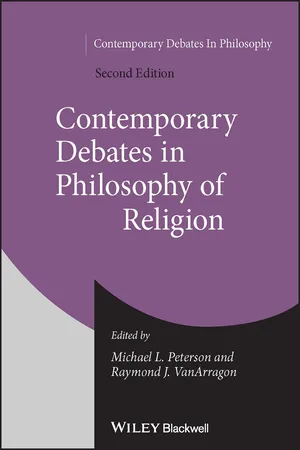Does absolutely everything have a cause? By “everything,” I mean everything, and all pluralities of things, in the appropriate ontological category. If the causal relata are states of affairs or situations, then causal universalism would be the thesis that all states of affairs, both individually and in all combinations, have causes. If we think instead in terms of causal explanation as a relation between ontologically fundamental truths, then the thesis would be that all such truths and all pluralities of such truths have causal explanations. For the sake of simplicity of exposition, I will assume that the basic relata of causation are states of affairs, but all of my arguments would apply with equal force on the alternatives.
Causal universalism invites assent because of its simplicity. However, there are two considerations that provide grounds for denying it. First, there are good reasons to embrace causal finitism, the thesis that all causal chains are finite in length, ruling out all causal cycles and infinite causal regresses. Second, the ban on causal circularity also rules out infinite regresses. Finally, if we assume that self‐causation is impossible, then causal universalism leads to a contradiction when it is applied to the totality of all states of affairs.
A. Causal Finitism
In some important recent work,2 Alexander Pruss has defended the thesis of causal finitism, the thesis that any state of affairs can have only a finite number of causes in a well‐founded network. This entails that there can be no cycles or infinite regresses, which in turn entails that causal universalism is false, since every causal network must terminate in one or more uncaused nodes.
One argument for causal finitism relies on a family of hypothetical “super tasks,” such as the Grim Reaper paradox of Jóse Benardete.3 Benardete asks us to imagine a victim, Fred, who is assailed by an infinite phalanx of would‐be executioners, the Grim Reapers. Each Grim Reaper is assigned a deadline between midnight and 12:01 a.m.: if the Reaper finds Fred alive at its assigned moment (because no earlier Reaper has killed him), then it kills Fred. If an earlier Reaper has already killed Fred, it does nothing. The Reapers’ assigned deadlines are arranged in the following way: for Reaper #1, the deadline is 12:01 a.m.; for Reaper #2, it is 30 seconds after midnight; for Reaper #3, it is 15 seconds after midnight; and so on, ad infinitum. There is no first Reaper (in the order of time): in order to survive any finite period after midnight, Fred must escape an infinite number of earlier deadlines (which is, per hypothesis, impossible).
The story leads quickly to a contradiction, on the assumption that Fred does not die unless one of the Reapers kills him. At least one Grim Reaper must act, since if all of the Reapers whose numbers are greater than 1 do nothing, then Reaper #1 will act. However, it is impossible for any Grim Reaper to act, since, for any
n, Grim Reaper #
n cannot do so unless Fred survives until its assigned deadline at
seconds after midnight. It is impossible for Fred to survive that long, since Fred’s surviving until Reaper #
n’s deadline entails that no Grim Reaper with a number larger than (
n + 2) has acted, but, in that case, Reaper #(
n + 1) must have acted.
Let us modify Benardete’s Grim Reaper scenario in order to eliminate extraneous elements for our purposes. All we need is an infinite series of Signalers, each of which is capable of receiving a signal (in the form of a finite number) from its predecessor at a pre‐assigned deadline and of sending an appropriate signal in time to its successor. Each Signaler is assigned a number, from 1 to infinity. Signaler #n acts according to the following rule: (i) if it receives a signal in the form of a number m > n from its predecessor, then it passes this number along to its successor, and (ii) if it does not receive such a signal from its predecessor, then it sends the number n as a signal to its successor. It is easy to prove that at least one Signaler will send its number to its successor: for example, if no Signaler with a number greater than 1 does so, Signaler #1 will. However, it is also impossible that any Signaler send its number to its successor. Suppose, for contradiction, that Signaler #n does so. This means that it did not receive any number greater than n from its predecessor, but this is impossible. If Signaler #(n + 1) did not receive any number m greater than (n + 1) from its predecessor, it would have sent (n + 1) to Signaler #n.
When a story like this yields a contradiction, we can use this contradiction as a way to falsify at least one of the presuppositions that led us initially to the necessarily false conclusion that the story was possible. I will argue that the presupposition of the story that we should reject is the assumption that it is possible for an event to have an infinite causal history. The story clearly assumes this, since each Signaler’s action or inaction at the moment of its assigned deadline depends on an infinite number of prior events (the signals created or transmitted by each of the preceding signalers). If no event can have an infinite causal history, then causal finitism must be necessarily true.
I have two arguments for this verdict. First, we can appeal to a version of what David Lewis called “patchwork principles.” A patchwork principle is a principle that guides us in making judgments about what is metaphysically possible. The principle relies on two assumptions. First, we assume that some p...

